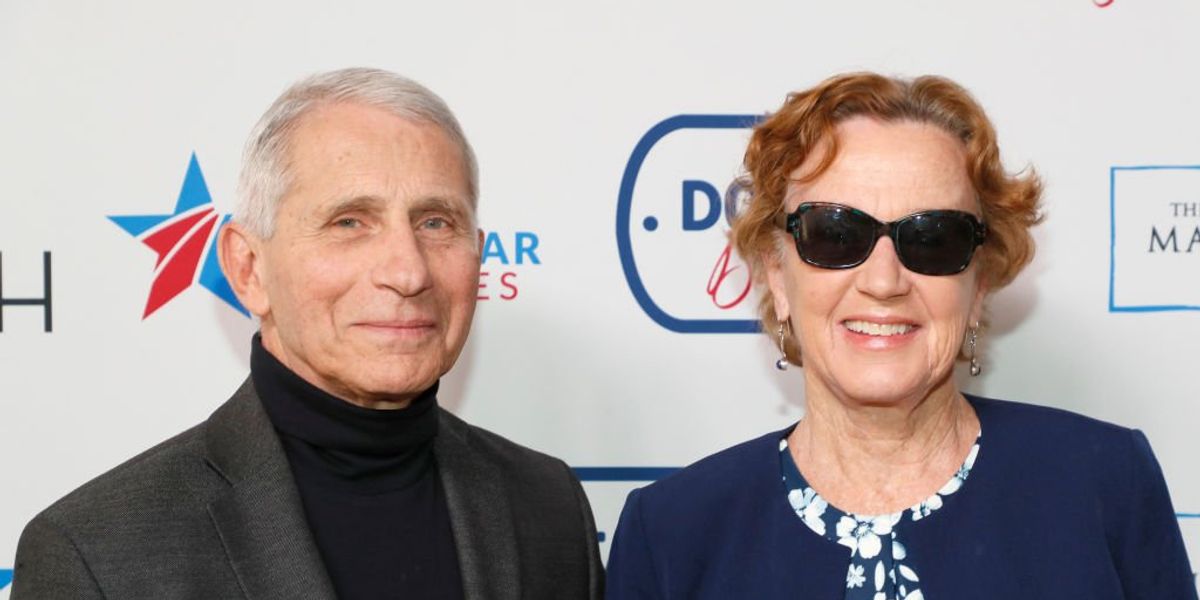

Health and Human Services Secretary Robert F. Kennedy Jr. indicated last week that his department would downsize its workforce from 82,000 to 62,000 employees as part of a broader overhaul intended to maximize efficiency and save taxpayers money. Senior officials at the National Institutes of Health, a subordinate agency, were evidently not immune to this shake-up.
Insiders told Politico that Christine Grady, the wife of former National Institute of Allergy and Infectious Diseases Director Anthony Fauci, was ousted Tuesday from her role as senior investigator at the NIH Clinical Center's Department of Bioethics. Kennedy allegedly signed off on the termination of Grady, who spearheaded research into the ethics of the U.S. pandemic response.
Fauci allies Clifford Lane, deputy director for clinical research and special projects at NIAID, and Emily Erbelding, director of the NIAID division of microbiology and infectious diseases, were reportedly also given the boot.
Several institute directors, including Fauci ally Jeanne Marrazzo — the NIAID director who claimed during the pandemic that "wearing a mask is very effective" and told people not to gather in groups, including at "gyms, bars and churches" — were among the officials linked to the government's development and rollout of the COVID-19 vaccines who were offered reassignments.
'What we've been doing isn't working.'
A copy of the agency's email to directors obtained by Nature states, "HHS proposes to reassign you as part of a broader effort to strengthen the Department and more effectively promote the health of the American people."
The letter offered the Washington, D.C., and Atlanta area-based directors the option of working in Alaska, Montana, and Oklahoma — supposedly an inducement to quit — noting, "This underserved community deserves the highest quality of service, and HHS needs individuals like you to deliver that service."
Whether they were fired or effectively resigned rather than transfer to distant outposts is unclear.
As the old guard were marched out of the NIH on what coincidentally was Dr. Jay Bhattacharya's first day in office as the director of the agency, Kennedy noted on X, "This is a difficult moment for all of us at HHS. Our hearts go out to those who have lost their jobs."
Despite characterizing the terminations as difficult, Kennedy underscored that they were necessary.
"The reality is clear: What we've been doing isn't working. Despite spending $1.9 trillion in annual costs, Americans are getting sicker every year. In the past four years alone, the agency’s budget has grown by 38% — yet outcomes continue to decline," wrote the health secretary. "We must shift course. HHS needs to be recalibrated to emphasize prevention, not just sick care. These changes will not affect Medicare, Medicaid, or other essential health services.
'This will go down as one of the darkest days in modern scientific history.'
Bhattacharya said in an email to staff that the terminations would "have a profound impact on key N.I.H. administrative functions, including communications, legislative affairs, procurement and human resources" and thanked the "scientists and staff whose work has contributed to lifesaving breakthroughs in biology and medicine."
Although a long time coming, the layoffs caught some workers off guard and enraged certain health establishmentarians.
Jessica Henry, formerly a digital communications specialist at the NIH's National Institute of Dental and Craniofacial Research, told the New York Times that she learned after showing up to at work in Maryland on Tuesday that she had been canned with her entire team of communications and health education specialists.
"I also just feel so confused, and honestly kind of angry, because we hear a lot about how the administration wants to increase transparency," said the former theater teacher. "They want accountability to the American people for how their tax dollars are being spent. And from what I can tell, they just fired all of us who do that."
Michael Osterholm, director of the University of Minnesota’s Center for Infectious Disease Research and Policy, bemoaned the layoffs, telling Nature, "This will go down as one of the darkest days in modern scientific history in my 50 years in the business. These are going to be huge losses to the research and public health community."
"These are going to be huge losses to the research community," added Osterholm.
Monica Bertagnolli, former NIH director under Joe Biden, told Nature the treatment of the directors was "frankly unconscionable," adding, "These are all outstanding leaders, who were let go without accounting for the harm that could be done with the loss of research productivity and the loss of programs delivering lifesaving treatments."
Like Blaze News? Bypass the censors, sign up for our newsletters, and get stories like this direct to your inbox. Sign up here!
.png)
 17 hours ago
6
17 hours ago
6















 English (US)
English (US)